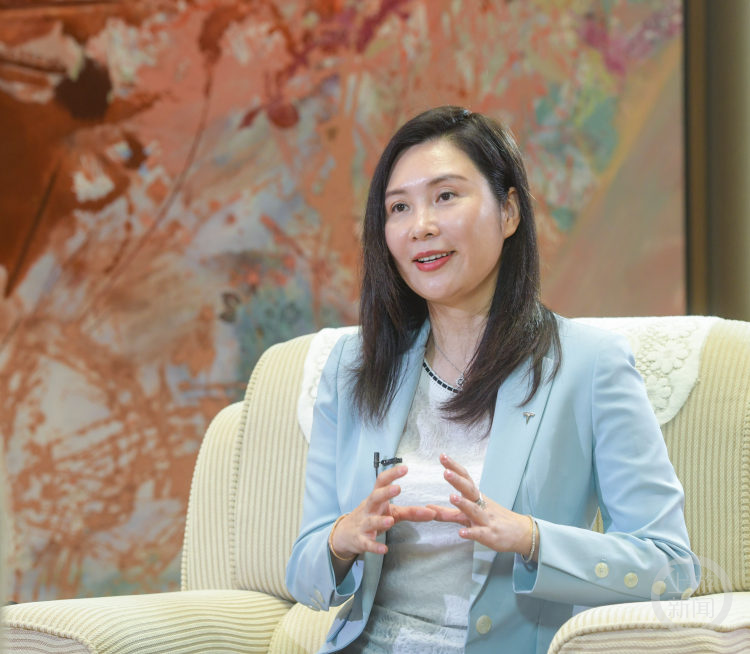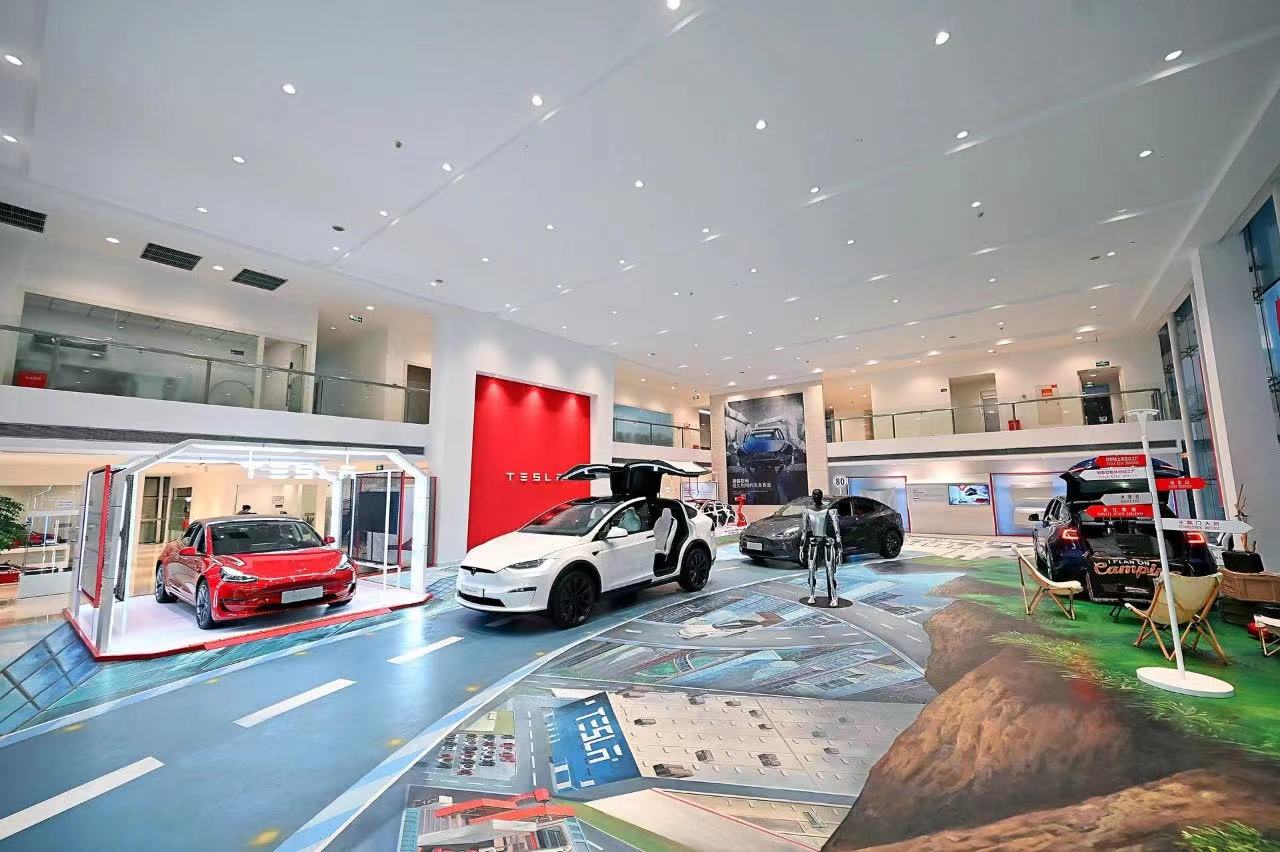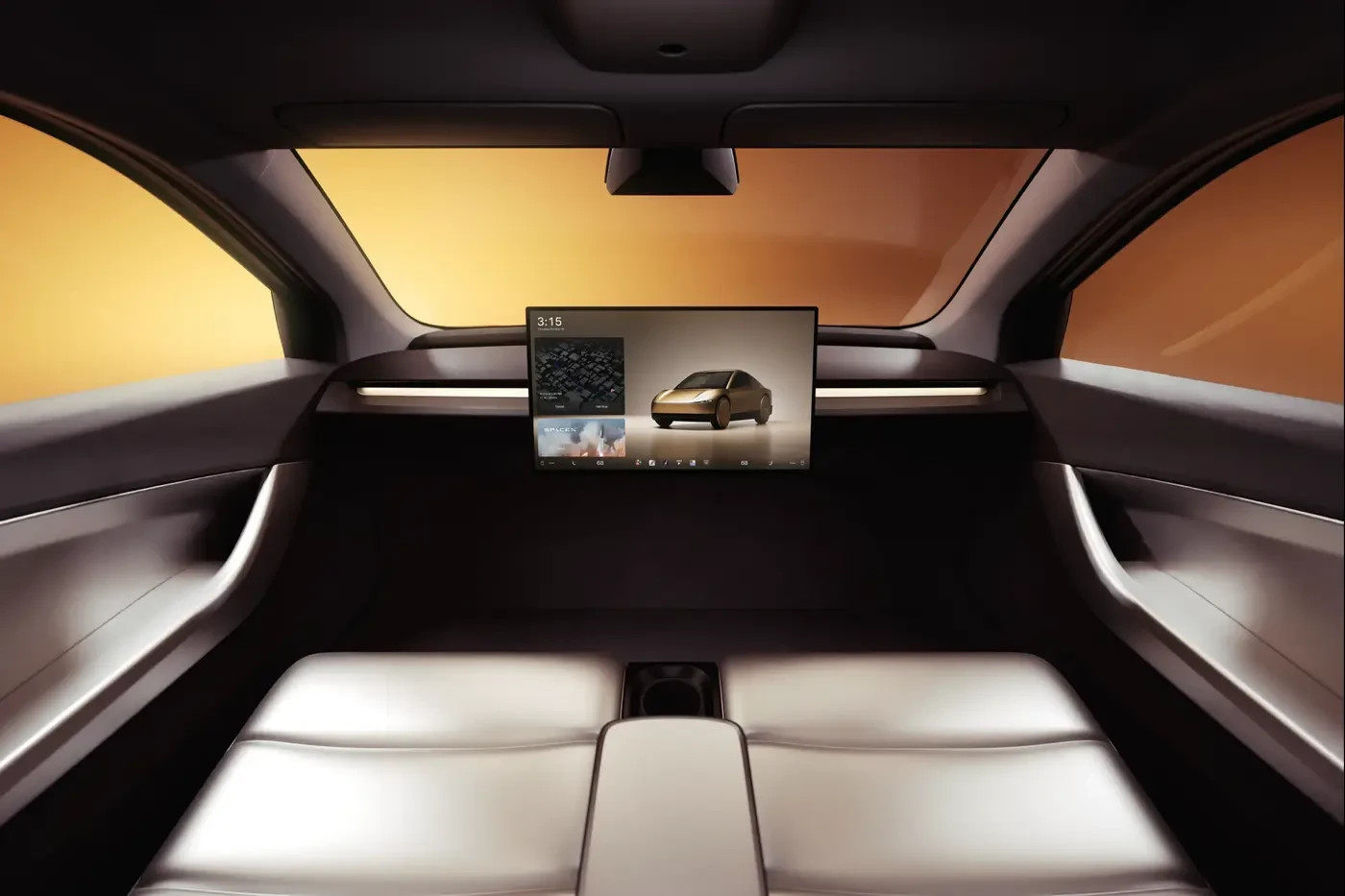 Bridging News
Bridging News
Tesla Powers up Chongqing's Journey to Becoming a Supercharging City丨Insights
Chongqing- "Chongqing, as the only municipality in China's central and western regions and an inland opening-up highland, is ripe with new growth opportunities. By 2035, The mega city's population is expected to reach 36 million, creating immense potential for new energy vehicle (NEV) consumption," said Tao Lin, Global Vice President of Tesla, during an interview with Bridging News on October 21.

Tao Lin, Global Vice President of Tesla. (Photo/Zhang Jinqi)
"Chongqing's unique mountainous topography also highlights the intelligence, safety, and agility of Tesla's vehicles," Tao added.
Tesla's journey in Chongqing, which began in 2018, is part of a broader expansion across China. The company has already established more than 520 stores and 2,600 charging stations nationwide.
Tesla has established nearly 20 sales and service outlets and over 50 Supercharger stations in Chongqing, including Southwest China's largest delivery center. The city also hosted the world's first Gigafactory-themed store and was among the first to debut the Cybertruck.

Tesla's Gigafactory-themed store in Chongqing. (Photo/Tesla)
Tao reflected on Tesla's success in China since entering the market in 2013. "Last year, our China factory produced over 950,000 vehicles with a localization rate surpassing 95%," she noted, crediting China's strong supply chain, talent, and business-friendly environment for the growth.
She highlighted Chongqing's car trade-in policy, launched in August, which offered favorable subsidies and attracted buyers nationwide, underscoring the city's commitment to becoming an international consumption center.
Tao also touched on Tesla's broader strategy for the next decade, focusing on disruptive technologies to tackle mobility and energy challenges. The company aims to create an integrated innovation hub for electric vehicles, energy storage, AI, and robotics. "We are committed to deepening our ties with the Chinese market, delivering better products, and advancing the industry alongside Chinese enterprises through continuous innovation," Tao said.
At Tesla's "We, Robot" event on October 11, the company unveiled the Cybercab, a fully autonomous taxi without a steering wheel, pedals, or charging port that features wireless charging. This showcase highlights Tesla's latest advancements toward fully autonomous driving capabilities.

The interior of Cybercab. (Photo/Tesla)
Tao expressed optimism when asked about competition with China's burgeoning NEV companies. "With the demand for 20 million vehicles annually in China, there is ample room for both Tesla and domestic competitors to thrive. Our shared goal is to accelerate the world's transition to renewable energy, and Tesla remains committed to leading this effort by investing in technology R&D and enhancing services," she explained.
Tesla's plans for Chongqing include actively participating in the city's "Supercharging City" initiative. Tesla currently operates over 50 supercharger stations in Chongqing, with each station capable of delivering a 150-kilometer charge in just five minutes. Tao revealed that the company plans to expand this network further, particularly in high-frequency travel areas and rural regions, enhancing the accessibility of EV charging across the city.
In addition, Tesla is eager to engage in further exchanges with Chongqing around corporate innovation and green mobility development. "We aim to share our experiences and perspectives on the future of transportation, green mobility, and sustainability, contributing to the city's development in science, technology, and environmental protection," Tao concluded.
 Related Stories
Related Stories